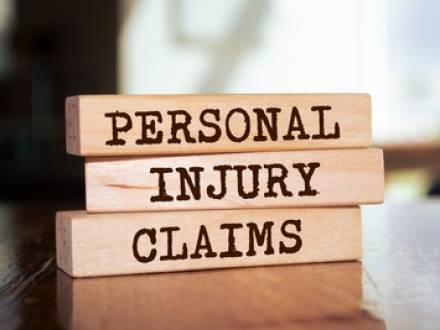Free Consultation
915-544-5200Do You Have to Pay Taxes on a Personal Injury Settlement?
 After sustaining injuries in an accident caused by someone’s negligence or an incident involving an intentional act, you may qualify for compensation through a personal injury claim. These claims can often be settled through negotiations, but some are decided in court. Either way, a favorable settlement or verdict can bring much-needed and well-deserved funds.
After sustaining injuries in an accident caused by someone’s negligence or an incident involving an intentional act, you may qualify for compensation through a personal injury claim. These claims can often be settled through negotiations, but some are decided in court. Either way, a favorable settlement or verdict can bring much-needed and well-deserved funds.
Almost everything Americans buy or receive is subject to taxation. Are personal injury settlements taxed? How can you find out if you qualify for compensation? A knowledgeable attorney from James Kennedy, P.L.L.C. can answer your questions and help you determine your next steps. Call now for your free consultation.
What Damages Could Your Texas Personal Injury Settlement Include?
In Texas, you likely qualify for compensation after an injury accident or incident if you are less than 50 percent at fault. Laws differ by state, so it is vital to understand the form of negligence used in the state where your accident occurred. For example, New Mexico uses pure comparative negligence. These cases may stem from:
- Car crashes
- Truck crashes
- Pedestrian accidents
- Motorcycle accidents
- Defective products
- Premises liability accidents and assaults
These and other situations may give you grounds to file a claim. The best way to be sure is to call James Kennedy, P.L.L.C. to discuss your case.
If you are eligible to file a claim, your settlement will likely include compensatory damages, which are further divided into economic and non-economic damages. In rare instances, you may also be awarded exemplary or punitive damages. If you are wondering, damages in personal injury cases are sums of monetary reimbursement or compensation you could receive for specific, eligible losses.
- Economic damages may include medical expenses, lost income, replacement care, property damages, and other actual accident-related expenses.
- Non-economic damages compensate victims for intangible consequences, such as pain and suffering, loss of consortium, disfigurement, loss of enjoyment of life, inconvenience, mental or emotional anguish, and other similar losses.
- Exemplary or punitive damages do not reflect your losses. Instead, they serve to punish the defendant for malice or gross negligence.
Your determined lawyer from James Kennedy, P.L.L.C. will ensure you get the compensation you deserve.
Are the Proceeds from Your Personal Injury Settlement or Verdict Taxable?
Texas does not have a state income tax for individuals, and the state does not tax most personal injury verdicts or settlements. New Mexico does have a state income tax, but most portions of a settlement or verdict are not considered income. As with most laws, some exceptions may apply to federal laws regarding these damages:
- If you receive compensation for lost wages, you will obtain only your net amount rather than the gross.
- If you are awarded punitive damages, they are subject to taxes.
- As long as non-economic losses result from physical injuries, these damages are not taxed; purely emotional damages are.
- If part of your settlement or verdict amount includes interest, that interest is taxable.
- If you deducted accident-related medical expenses on a previous year’s federal tax return, that portion of your settlement or verdict is considered taxable income.
When you choose James Kennedy, P.L.L.C., we will work to separate the damages you receive to minimize your tax obligations, if applicable.
Call Our Experienced El Paso, TX Personal Injury Lawyers
You deserve compensation if someone else injures you, and you need to be aware of the tax implications surrounding your settlement. At James Kennedy, P.L.L.C., we will help you get the highest possible compensation with the least possible taxable amounts. Call us at 915-544-5200 for your free consultation with our dedicated El Paso County, TX serious injuries attorneys. Se Habla Espanol.










